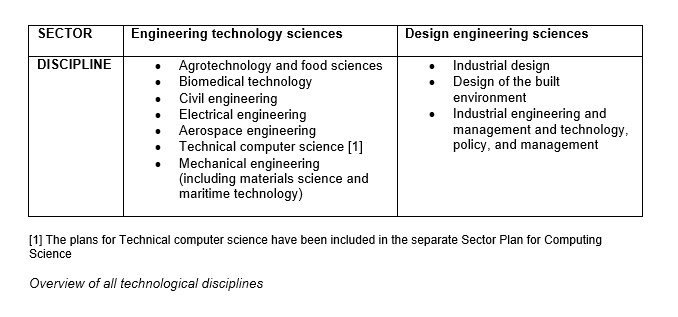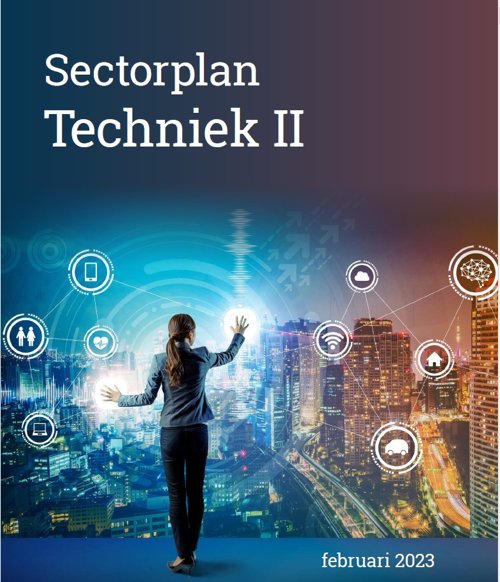Today, the deans of technology of the four technological universities (4TU) and the University of Groningen have submitted an Integral Sector Plan for Technology to the Ministry of Education, Culture, and Science. The plan’s ambition is to strengthen the technological sciences and to be able to offer the knowledge required to solve urgent societal transitions. Implementation of the plans is budgeted at €40 million per year.
Direct link Sector Plan (in Dutch).
In the past year, a delegation of deans of technology of the four technological universities (Delft University of Technology, Enschede University of Technology, the University of Twente, and Wageningen University & Research) and the UG – which provides a number of engineering degree programmes as a general university as well – and their networks from 24 different faculties together worked on an integral Sector Plan for Technology. The ambition of the Sector Plan is to strengthen both the engineering technology sciences, including mechanical engineering, electrical engineering, and civil engineering, and the design engineering sciences, including industrial design, building sciences, and technology, policy, and management. The focus will predominantly lie on a multidisciplinary approach and so-called cross-over degree programmes, such as the programmes in the field of medical technology, sustainable food supply, and robotics.
Henri Werij, chair of the technology domain and Dean of the Faculty of Aerospace Engineering at TU Delft, says the following about the approach of the Sector Plan: ‘The great challenges in, among other fields, health, sustainability, and food that we are currently facing as a society require a transdisciplinary approach and that is exactly what we would like to set in motion with this new Sector Plan.’
4TU’s secretary, Marjolein Dohmen-Janssen, is delighted with the way that the Sector Plan was compiled. ‘We are incredibly proud of this integral plan, to which the deans of technology of so many different faculties have contributed. This has resulted in a Sector Plan in which the interests of all technological disciplines are well represented.’

Complex societal issues
The technological sciences initiate innovations and are the drivers behind big transitions in the field of energy, food, health, and digitization. Strengthening the technological sciences is vital to be able to keep offering the right solutions for these societal transitions and to be able to teach enough future employees the knowledge needed for this.
Societal transitions and their related issues are unprecedented in their complexity and are interconnected. To name a few: How do we speed up the energy transition? How do we supply the growing global population with sufficient healthy food without depleting the earth? And how do we protect our increasingly digital power plants, airports, and democratic processes from hackers? These are all closely related themes in which new technologies and people who have been trained in these technologies play an essential role.






